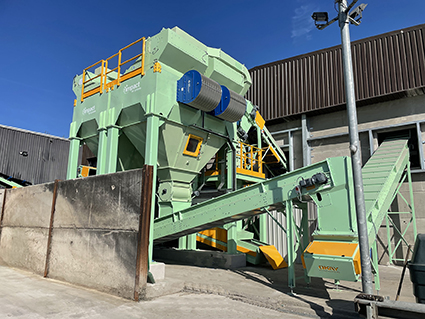Air technology for resource recovery offers numerous advantages that enhance the efficiency and effectiveness of modern waste management and recycling processes. One of the primary benefits is its ability to rapidly and accurately sort waste materials based on their physical properties, such as density and aerodynamic behaviour. This technology can quickly separate lighter materials like paper, plastic films, and other flexible plastics from heavier items such as metals and glass, significantly speeding up the sorting process and enabling high throughput, which is crucial for handling large volumes of waste in high-capacity facilities.
Another major advantage is the improved purity of recovered materials. Air technology can precisely differentiate between different types of materials, resulting in higher quality and less contaminated recycled outputs. This increased purity makes the recovered materials more valuable and easier to process in subsequent recycling stages, enhancing the overall economic viability of recycling operations.
Utilising air technology reduces the reliance on manual sorting, lowering labour costs and minimising human error. It also decreases the wear and tear on machinery that can occur with other separation methods, such as mechanical sorting, which often involves more contact & friction. This leads to lower maintenance costs and longer equipment lifespan.
Environmental benefits are also significant. By efficiently separating and recovering recyclable materials, air technology reduces the volume of waste sent to landfills, mitigating the environmental impact of waste disposal. It also supports the circular economy by promoting the reuse of materials, conserving natural resources, & reducing the need for virgin material production.
See Impact’s range of waste separation solutions using air technology here: www.impactairsystems.com/material-separation-solutions

